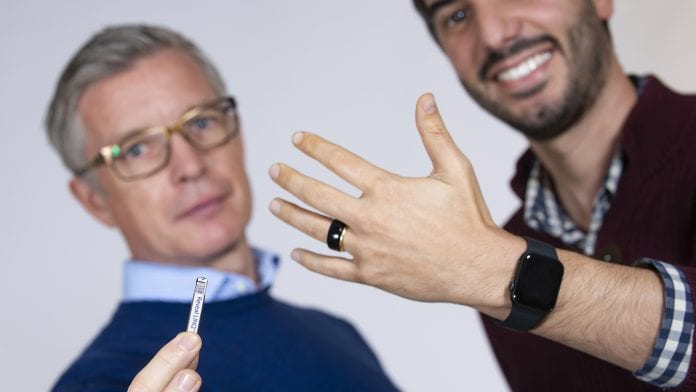
A new project has received a research grant to explore the efficacy of smart technology devices in detecting heart rhythm problems.
The Oxford University Hospitals NHS Foundation Trust project has received a grant of almost £150,000 from national charity Heart Research UK. The study, which is being led by Professor Timothy Betts, will recruit 50 patients with atrial fibrillation and follow them for six months, with the ultimate goal of using the data collected to guide anticoagulant treatment so that patients take anticoagulation only when they need it.
Current risks to atrial fibrillation patients
Atrial fibrillation (AF) causes an irregular and fast heartbeat, which makes the heart pump poorly, resulting in blood clots may form inside the heart. If the clots travel to the brain it can lead to an AF-related stroke. This risk of stroke in patients with AF is five-fold higher than in people with normal rhythm.
Anticoagulants play a major role in the management of this condition, which work by making the blood less likely to clot, which therefore reduces the risk of a stroke. However, anticoagulants also make patients more prone to bleeding and a significant number of patients on anticoagulants have a major bleed and some, such as brain bleeds, can cause death or severe disability.
Some people are in AF all the time, but many have intermittent, infrequent episodes. Currently, all AF patients are advised to take anticoagulation treatment all the time, so many people end up taking it when the vast majority of the time they are in a normal rhythm.
Harnessing smart technology
As AF does not always cause symptoms, there is a need for an accurate and reliable way to detect it and alert the patient so that anticoagulants are taken only when needed.
This project will be harnessing new technologies, such as small heart monitors placed under the skin, watches, and rings, that can track the heart rhythm continuously and send alerts.
The Medtronic LINQ II implantable cardiac monitor (ICM) is a device the size of a paperclip that is injected under the skin and monitors the heart rhythm – accurately detecting AF – and all of the smart devices are able to connect to a smartphone.
The study participants will receive an ICM and in the first three months Professor Betts and his team will see how well the ICM alerts the patient when AF is detected and how promptly the patient acknowledges the alert.
After three months, each patient will then be given either a Sky Labs CART ring or an Apple Watch, which will send alerts during AF episodes. The ICM will continue to monitor AF episodes and the team will see if the ring and watch are as good as the ICM at detecting AF, how well the ring and watch alert patients, and if the alerts are acknowledged.
Professor Betts said: “It is always fascinating to see advances in new technology and the wide range of applications that they can have. This project will allow us to understand if these new and innovative technologies can aid us in improving the treatment of the millions of people with AF in the UK.
“If successful, we will be able to tailor treatment to individual patients, increase the efficacy of treatment and reduce unnecessary medication. We are extremely grateful to Heart Research UK for funding this research.”
Kate Bratt-Farrar, Chief Executive of Heart Research UK, said: “We are delighted to be supporting the work of Professor Betts and his team, who are using cutting-edge technology to hopefully improve the lives of people living with the UK’s most common heart rhythm problem.
“Our grants are all about helping patients. They aim to bring the latest developments to those who need them as soon as possible. We are confident that Professor Betts’s project can bring about real and tangible improvements in how we treat patients, using technology that is both non-invasive and simple to use.
“The dedication we see from UK researchers is both encouraging and inspiring, and we at Heart Research UK are proud to be part of it.”









